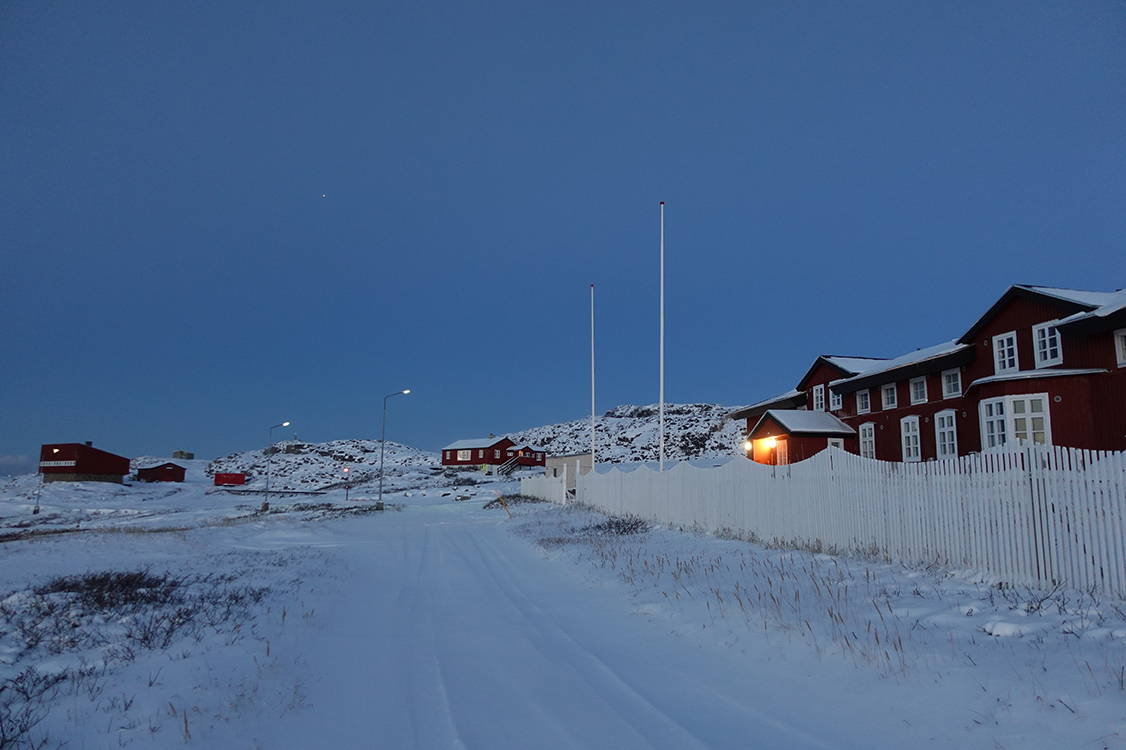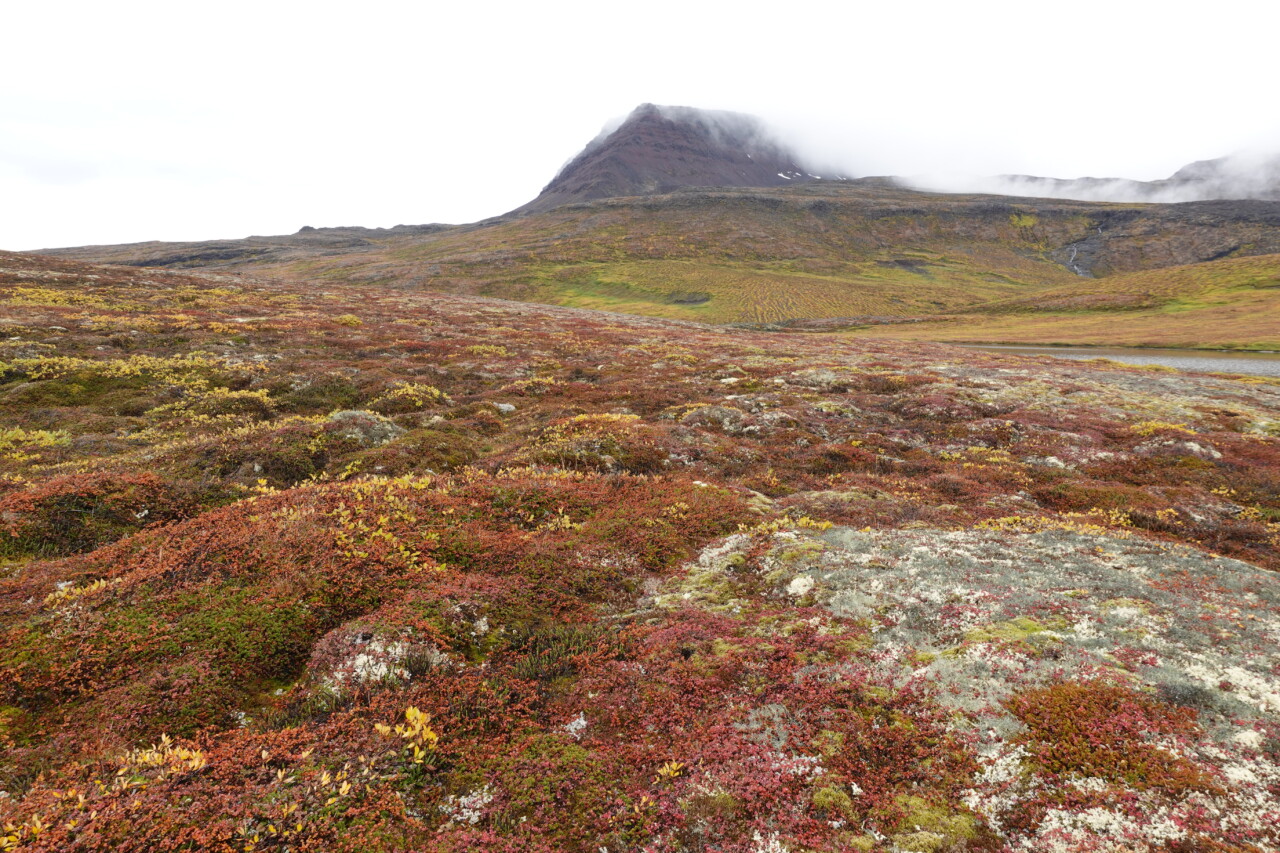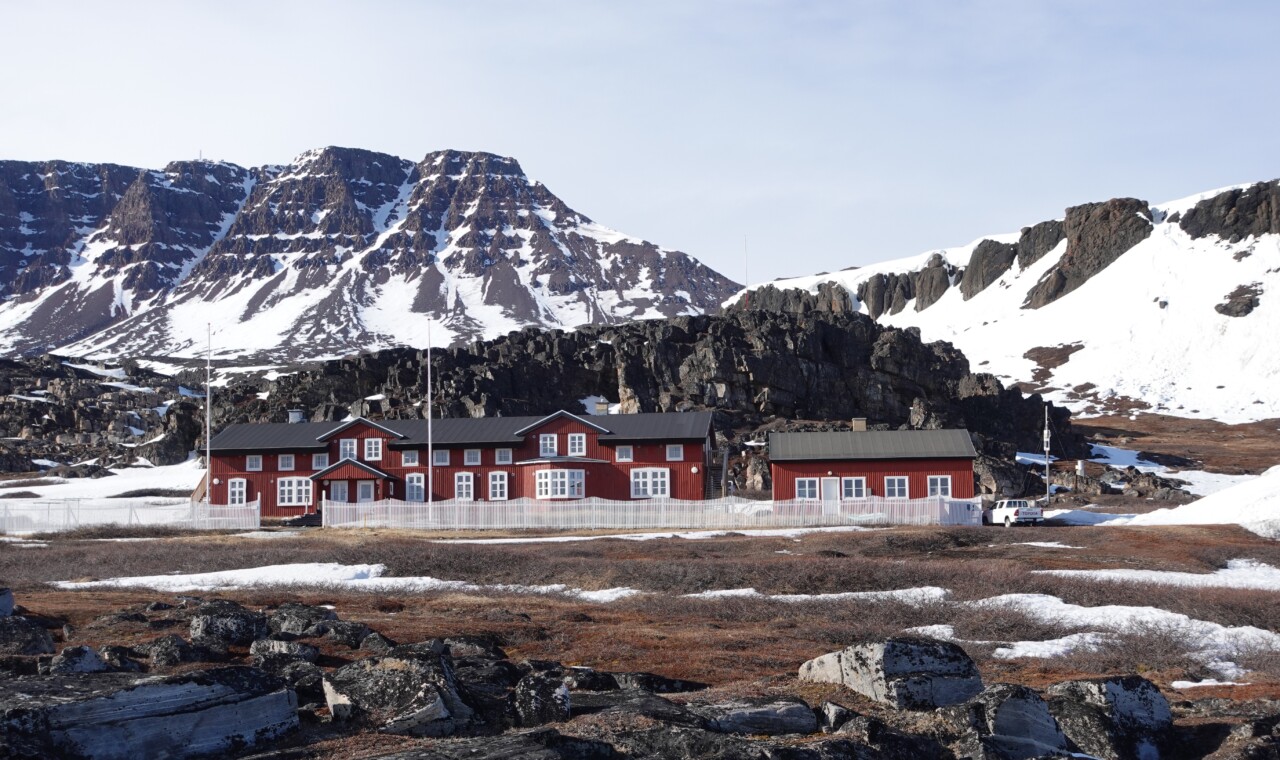Universitetsavisen
Nørregade 10
1165 København K
Tlf: 35 32 28 98 (mon-thurs)
E-mail: uni-avis@adm.ku.dk
—
Science
Arctic Station opens to students from a new Greenlandic biology programme and strengthens ties with the local community
»I landed in the new Greenland international airport on 14 January. It was the day when US influencers were handing out 100-dollar bills in Nuuk, trying to drum up support for bringing Greenland under US control,« says the head of Arctic Station, Professor Kirsten S. Christoffersen from the Department of Biology, University of Copenhagen (UCPH).
Arctic Station
Arctic Station was founded by botanist Morten Pedersen Porsild in 1906 on the island of Qeqertarsuaq [English/Danish: Disko Island, ed.]. The set-up of the station was supported by polar researchers like Knud Rasmussen, Mylius-Erichsen, and Fridtjof Nansen, and it was included on the Danish national budget in its early years.
Morten P. Porsild led the station until 1946 and was, in many ways, a pioneer who recognised the value of long-term data series on weather, ice, and snow. He was also deeply engaged in sharing knowledge with the local population.
In 1953, the University of Copenhagen took over the station. Until 1978, the area was reserved for biologists, but later geology and geography departments were also granted access. Today, the station is open to all fields of research, both from Denmark and abroad.
Read more here
»I sensed a feeling of confusion among Greenlanders: What’s going on, they asked – is this a joke? And everywhere, TV broadcasts were covering Trump and his desire to take over Greenland.«
Kirsten S. Christoffersen was partly in Nuuk to speak with the heads of the University of Greenland’s new bachelor’s programme in biology about a potential collaboration with Arctic Station, which has been a University of Copenhagen unit since 1953.
»Sharing knowledge is at the core of what research is. So I discussed with them how they could use our data and facilities in their work. It’s obvious that when we are in a constituent part of the Kingdom of Denmark – Greenland in this case – we should contribute to Greenlandic society,« says Kirsten S. Christoffersen.
Arctic Station on the West Greenlandic island of Qeqertarsuaq/Disko is a unique research station that attracts researchers and students from around the world every year.
Established in 1906, the station is in possession of data that goes further back in time than most other research stations in the Arctic.
»In certain areas, we are among the world leaders. This includes research into permafrost and greenhouse gases in the Arctic. Our long-term weather and climate data series are freely accessible, and we receive many requests from researchers who wish to use them,« says the station’s head.
From Nuuk, Kirsten S. Christoffersen continued her journey up to Arctic Station, which is open year-round. Here, Trump’s ideas about taking control of Greenland were met with disbelief.
»I brought up Trump’s statements with the local Greenlanders I know, but it wasn’t something that they were eager to talk about. From what I gather, the Greenlandic people are generally positive towards more collaboration with other countries. But foreigners should not be allowed to come and dictate over Greenland. And the aggressive approach of some Americans does not win them any sympathy,« she says.
READ ALSO: Professor with a pump gun
During Kirsten S. Christoffersen’s visit in January, Arctic Station took part in a local town culture festival.
»We’ve participated before, but this time we had even more activities and it was advertised more broadly, including on Facebook, which is very popular in Greenland,« she explains.
Out of Qeqertarsuaq’s roughly 800 inhabitants, more than 100 showed up at Arctic Station, and the event was filmed both for local TV and the Arctic Station website.
»It was great to feel the interest in our work, and our three Greenlandic staff members especially noticed the curiosity. It’s clear that the local population is excited to speak with staff in their own language,« says the professor.
Researchers and students at Arctic Station often sail out to sea on the station’s vessel Porsild to collect water samples for measuring pH levels, temperature, and salinity, and the locals were very keen to learn more about this.
»Every family in Qeqertarsuaq has a boat and enjoys going out to fish, so they were curious to know what we were doing at sea when we weren’t fishing for fish.«
»Another big draw was our waste collection project, primarily focused on plastic. We assist a researcher from Aarhus University with biannual collections from an area measuring 100 by 100 metres, and we had displayed the results of the latest collection out on a table so everyone could see just how much — and what types — of waste we had found.«
»The project has been running for nearly ten years, and over the years, we’ve seen a reduction in plastic, which is, of course, positive. But it also raises questions: Are there actually less plastics in the oceans now, or where is the waste disappearing to?« the researcher asks.
A third topic that interested the locals was changes in the food chains.
»I drew on my own research into, among other things, Arctic tadpole shrimps — small crustaceans about two centimetres long that live at the bottom of Arctic freshwater lakes. Due to the warming of the lakes, the shrimps are increasingly eaten by freshwater predators migrating north, also as a consequence of warming. This means that both birds and fish, which partly rely on the shrimps as a food source, are losing part of their diet, and this affects the entire food chain,« says Kirsten S. Christoffersen.
READ ALSO: More space for scientists at Arctic Station after renovation project
At first glance, the research manager doesn’t feel the effects of Trump’s claims on Greenland directly. But she has given it some thought.
»Without Greenland, Denmark is not an Arctic nation. And many, especially at the Department of Biology and the Department of Geosciences and Natural Resource Management who work with Arctic issues, will be affected if we lose Arctic Station. Courses in Arctic bio-geosciences could also be impacted. The University of Copenhagen would no longer be able to offer our bachelor’s, master’s, and PhD students the opportunity to conduct fieldwork in the unique environment surrounding Arctic Station on Qeqertarsuaq,« says Kirsten S. Christoffersen.
The University of Copenhagen has indicated that it prioritizes Arctic research and education. The Faculty of Science now offers multiple courses of study every year at Arctic Station.
The majority of our projects today have a climate change dimension, and losing that knowledge base would be catastrophic.
Kirsten S. Christoffersen, Head of Arctic Station
»If we have to rent facilities from others, like the University Centre in Svalbard, the costs for the university will rise significantly. And it will certainly be too expensive for our students,« the professor predicts.
Losing Arctic Station could also mean that the long-standing monitoring and data collection of knowledge on permafrost, sea temperatures, and ocean acidification could be disrupted.
»The fact that the station’s history goes so far back is hugely significant. The majority of our projects today have a climate change dimension, and losing that knowledge base would be catastrophic,« says Kirsten S. Christoffersen.
The station leader hopes to strengthen collaboration with the Greenlandic university and the local community, and she already has several initiatives in the pipeline.
»It’s very much about communication and information. We currently have good cooperation with institutions in Greenland, but that should never be taken for granted, and many stakeholders in Greenland don’t even know about Arctic Station.«
»We plan to share more about our work with the outside world through social media, films, and educational activities, including new audiences like the local school, where older students can attend activity days and try using our equipment,« says Kirsten S. Christoffersen.
»It’s important that we continually ask ourselves: What exactly is our role as communicators of Arctic research, and how can we best contribute to Greenlandic society?«


